Wukro Elshadai Center
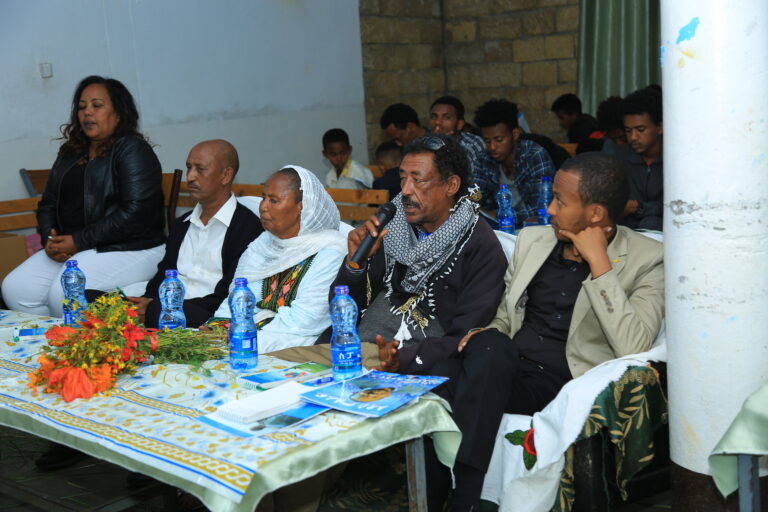
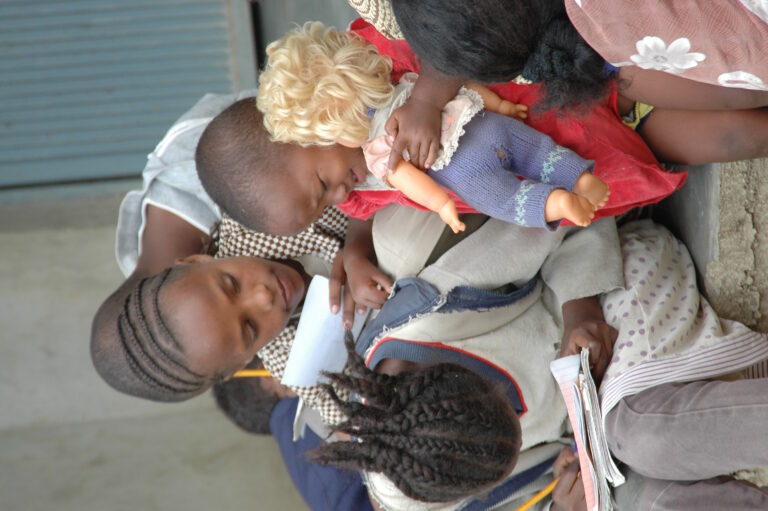

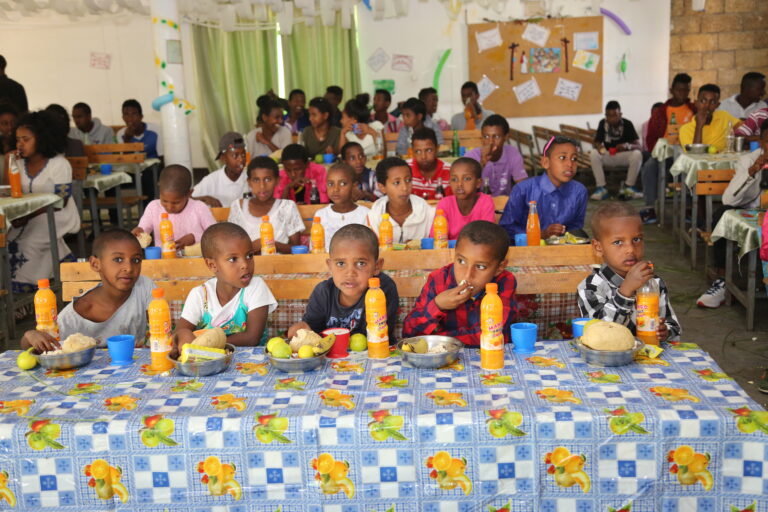
Wukro Elshadai Child Care Center
The child care center is one of the Elshadai centers of child care services for vulnerable infants and toddlers to grow up physically, mentally and psychologically meeting their daily needs. In addition, children and teens are monitored on a regular basis for their Body Mass Index (BMI), regulating their diet and weight, and maintaining their height and weight. The care unit monitors education by age and grade levels to ensure that children receive education at all levels.
During their out-of-school hours, they get to be engaged on painting and sculpting, learn the life and culture of the community, and go on vacation to their birth village during the winter months. They are also enabled to develop local knowledge by making group tours and get acquainted with the local history and monuments. They also are made to partake in voluntarism by organizing in Food, Health and hygiene, Environmental, Sports and Recreation Committees to help them learn the importance of work.
So far, more than 900 young people have benefited from the support and care and have gone on to higher education to be trained in various professions and are serving their country and the society. Currently, 172 children are being cared for and receiving education at the center.
Wukro Child Care and Support Center since 1984
The purpose of the center
By establishing an institution whose primary purpose is to provide support and education for children who are vulnerable to various social, economic, political and health problems, it envisions to enable them to become productive citizens. And also conduct income-generating activities to ensure the sustainability of services and continuity of the center.
- Goals and core functions
Child Care
The Child Care Center is a primary care center for the support of children that were orphaned due to a variety of socioeconomic problems, and through this program, infants and toddlers will be nurtured physically, mentally, and emotionally.
Main functions
- The vulnerable children of the area are brought into the Center by the region’s labor and social affairs Bureau.
- The center admits the children and provide them with appropriate accomodation, food, clothing, health and hygiene services.
- Infants and toddlers are monitored on a regular health checklist, Body Mass Index (BMI), and monitored according to their weight and condition and helped to maintain their height and weight.
- The care unit monitors education by age and grade levels to ensure that children receive early education. The children attend kindergarten and primary school at the school inside the center.
- During their out-of-school hours, they will be drawn to painting and sculpting, recognizing the lifestyle and culture of the community, and going on vacation during the winter months.
- Visit various programs to get acquainted with the local community and culture.
- Participate in food, health and hygiene, environmental, sports and recreation committees to help teens learn the importance of work.
So far, more than 900 young people have benefited from the support and care and have gone on to higher education to be trained in various professions and are serving their country and the society. Currently, 172 children are being cared for and receiving education at the center.
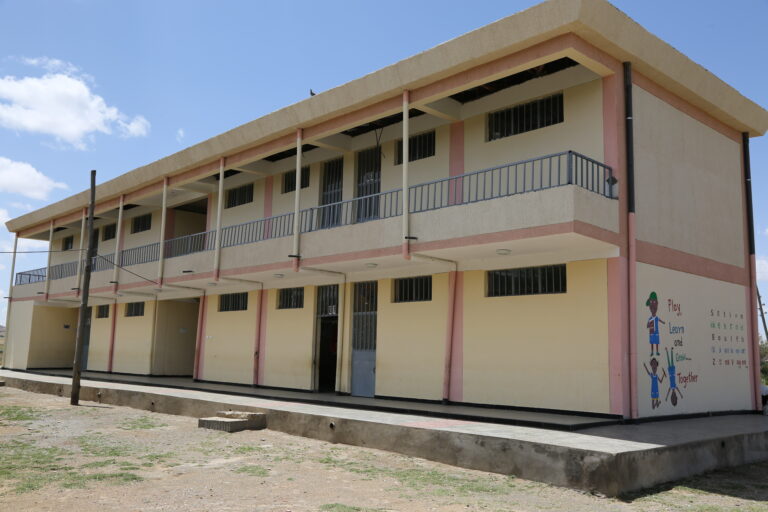
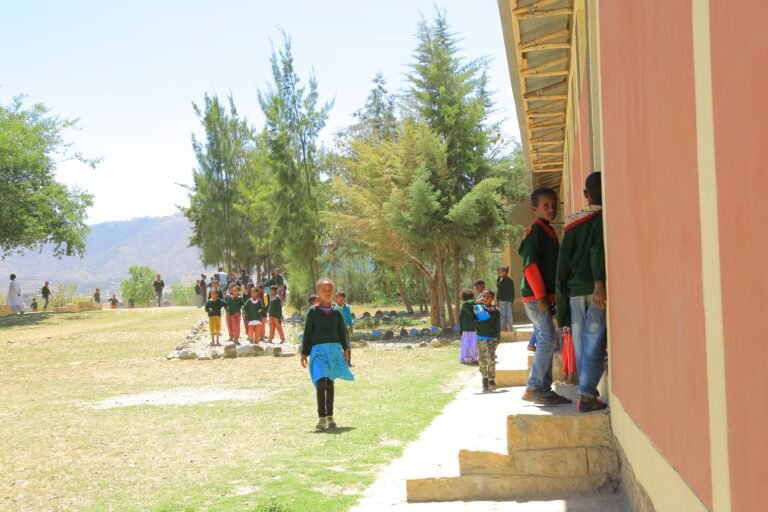



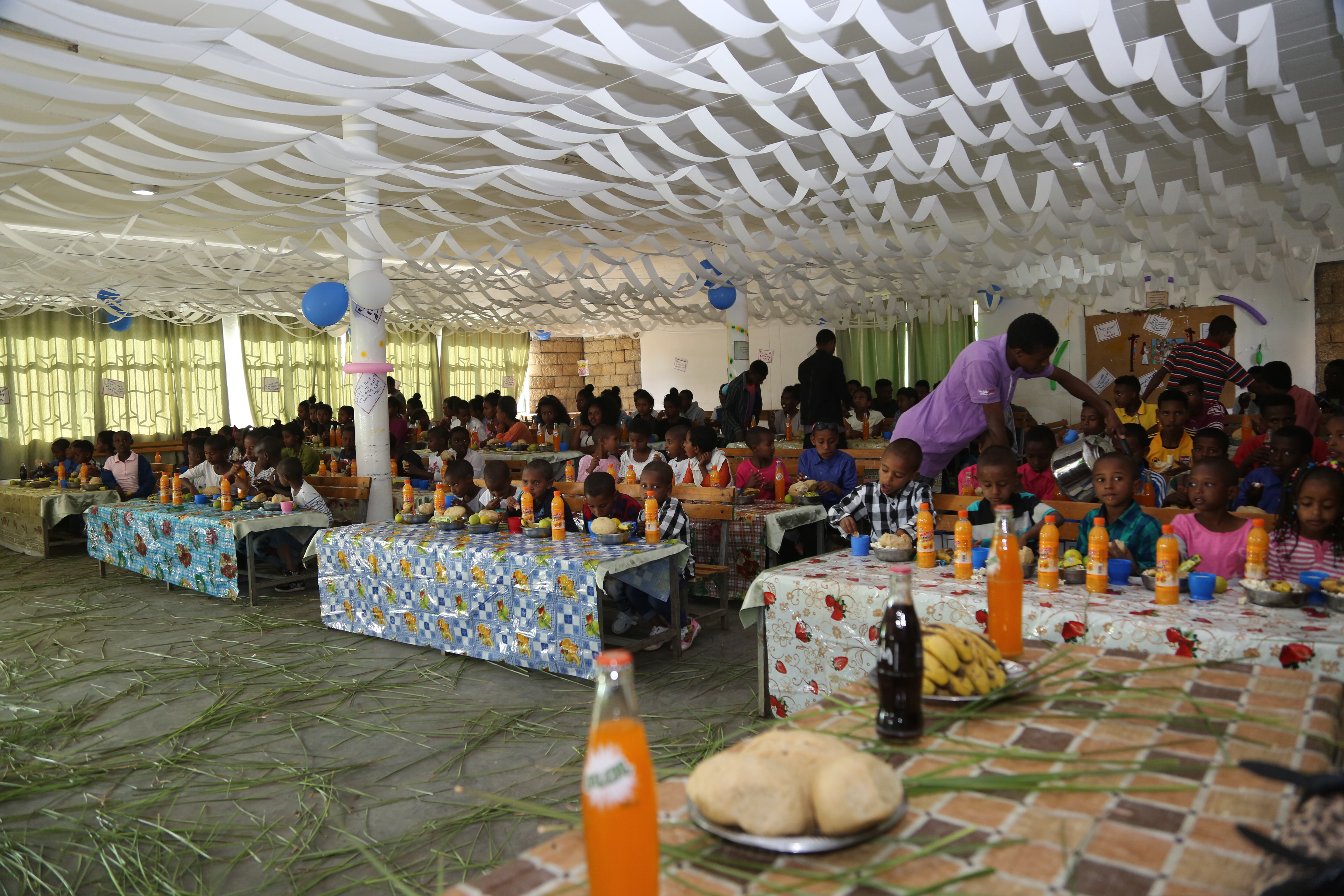
Community-wide support and income generating activities
* modern farming education and knowledge is underway by utilizing modern agricultural development practices in the suburb of Wukro, teaching modern agricultural methods for the community, by providing biodiesel agro-technology, animal husbandry and livestock development, beekeeping, horticulture development, natural resource development and environmental protection; and by introducing new vegetables and fruits to the community.
In collaboration with CIP (Center for International Potato), the practice of producing sweet potatoes was considered a good experience and worked towards not distributing Orange fleshed sweet potato thereby benefiting the farmers as well as ensuring the food security of farmers and pastoralists.
This type of sweet potato is rich in vitamins A and manganese, hence, was used to feed children in the center and as farmers planted it as backyard crop, mothers around Mekelle and Wukro were able to use it as nutritious food and as fodder for animal feed.
Help through training the public to understand and apply organic fertilizer, the use of vegetable waste, soil and animal dung for various crops. In addition, it also provides biogas energy for cooking and electrical use as well as biogas fertilizer.
Because of the vulnerability to erosion in the winter season, the area has been rehabilitated by doing on environmental and natural resource development activities such as diverting the flow of water using Gabion wire and stone. The Rehabilitated Land is made available to a variety of livestock feeders, grasses, and forest trees and that helped farmers and agricultural experts to learn and experience the cost-effective erosion prevention method. In collaboration with the Israeli institute CultivAid, nutrition training based on the produces from the farms has been provided to professionals from different regions and institutions of higher education.
2. Educational service
Children in the Wukro Care Center and the surrounding villages as well as ad the district of Kilite Awlaelo benefited from the availability of quality education, standard classrooms, labs, physical education that produces good behavior by hiring good teachers.
The school is working to provide quality education services for up to 500 children and teens, and the center is working to generate revenue from the school for its continuity








Wukro Elshadai Community Support Center
The center is educating the local farmers on new agricultural practices and methods by utilizing modern farm in the suburb for agricultural development activities, producing fruits and introducing them to the community.
In collaboration with CIP (Center for International Potato), the practice of producing sweet potatoes was considered a good experience and worked towards not distributing Orange fleshed sweet potato thereby benefiting the farmers as well as ensuring the food security of farmers and pastoralists.
This type of sweet potato is rich in vitamins A and manganese, hence, was used to feed children in the center and as farmers planted it as backyard crop, mothers around Mekelle and Wukro were able to use it as nutritious food and as fodder for animal feed.
Help through training the public to understand and apply organic fertilizer, the use of vegetable waste, soil and animal dung for various crops. In addition, it also provides biogas energy for cooking and electrical use as well as biogas fertilizer.
Because of the vulnerability to erosion in the winter season, the area has been rehabilitated by doing on environmental and natural resource development activities such as diverting the flow of water using Gabion wire and stone. The Rehabilitated Land is made available to a variety of livestock feeders, grasses, and forest trees and that helped farmers and agricultural experts to learn and experience the cost-effective erosion prevention method.
In collaboration with the Israeli institute CultivAid, nutrition training based on the produces from the farms has been provided to professionals from different regions and institutions of higher education.
3.3. Wukro Elshadai Education Service Center
Children in the Wukro Care Center and the surrounding villages as well as ad the district of Kilite Awlaelo benefited from the availability of quality education, standard classrooms, labs, physical education that produces good behavior by hiring good teachers. The school is working to provide quality education services for up to 500 children and teens, and the center is working to generate revenue from the school for its continuity.
